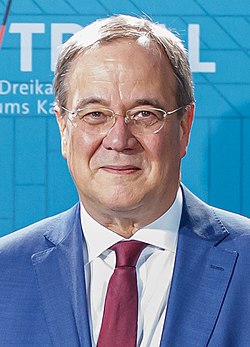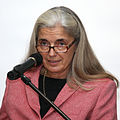Cabinet of Armin Laschet Cabinet Laschet | |
|---|---|
 24th Cabinet of North Rhine-Westphalia | |
| 30 June 2017 – 27 October 2021 | |
 Armin Laschet in 2021 | |
| Date formed | 30 June 2017 |
| Date dissolved | 27 October 2021 |
| People and organisations | |
| Minister-President | Armin Laschet |
| Deputy Minister-President | Joachim Stamp |
| No. of ministers | 12 |
| Member parties | Christian Democratic Union Free Democratic Party |
| Status in legislature | Coalition government (Majority) |
| Opposition parties | Social Democratic Party Alliance 90/The Greens Alternative for Germany |
| History | |
| Election | 2017 North Rhine-Westphalia state election |
| Legislature term | 17th Landtag of North Rhine-Westphalia |
| Predecessor | Second Kraft Cabinet |
| Successor | Wüst cabinet |
The Laschet cabinet was the state government of North Rhine-Westphalia between 2017 and 2021, sworn in on 30 June 2017 after Armin Laschet was elected as Minister-President of North Rhine-Westphalia by the members of the Landtag of North Rhine-Westphalia. It was the 24th Cabinet of North Rhine-Westphalia.
Contents
It was formed after the 2017 North Rhine-Westphalia state election by the Christian Democratic Union (CDU) and Free Democratic Party (FDP). Excluding the Minister-President, the cabinet comprised twelve ministers. Eight were members of the CDU, three were members of the FDP, and one was an independent politician.
After Laschet's resignation as Minister-President, the Laschet cabinet was succeeded by the Wüst cabinet on 28 October 2021.












